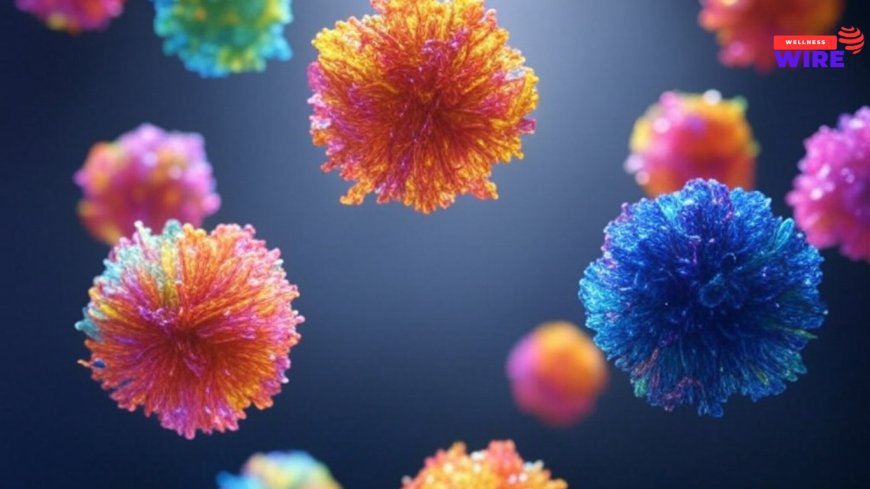The ‘Forever Chemicals’ Crisis: How PFAS Are Quietly Poisoning Global Health
PFAS, known as "forever chemicals," are contaminating water, food, and human health. Learn about their dangers, environmental impact, and regulatory failures.

Introduction
In recent years, scientists and health experts have sounded the alarm over per- and polyfluoroalkyl substances (PFAS), commonly known as "forever chemicals." These synthetic compounds, used for decades in industrial and consumer products, are now being linked to severe health risks, environmental contamination, and regulatory failures. Despite growing awareness, PFAS remain widespread in water, soil, and even human bloodstreams worldwide.
This article delves deep into the global PFAS crisis, exploring its origins, impact on public health, and the urgent need for stricter regulations.
What Are PFAS?
PFAS are a group of over 12,000 man-made chemicals used since the 1940s for their water- and grease-resistant properties. They are found in everyday products, including:
- Nonstick cookware (Teflon)
- Water-resistant clothing
- Food packaging (fast-food wrappers, microwave popcorn bags)
- Firefighting foam
- Stain-resistant carpets and furniture
These chemicals are dubbed "forever chemicals" because they do not break down easily in the environment or the human body. Instead, they accumulate over time, leading to long-term exposure risks.
The Growing Health Concerns
Research has linked PFAS exposure to numerous serious health conditions, including:
- Cancer: Studies by the Environmental Working Group (EWG) and National Cancer Institute suggest a strong correlation between PFAS and kidney, testicular, and liver cancer.
- Hormonal Disruptions: PFAS interfere with endocrine function, potentially leading to fertility issues and developmental delays in children.
- Immune System Suppression: A study published in Environmental Health Perspectives indicates that PFAS reduce vaccine effectiveness and increase susceptibility to infections.
- Liver Damage: Prolonged exposure can lead to non-alcoholic fatty liver disease (NAFLD), as reported by a Harvard University study.
- Cardiovascular Issues: PFAS have been linked to high cholesterol, hypertension, and an increased risk of heart disease.
Environmental Impact of PFAS
PFAS contamination is not just a human health crisis—it’s an environmental catastrophe. These chemicals infiltrate drinking water supplies, food chains, and ecosystems, leading to irreversible damage.
- Water Pollution: According to the U.S. Geological Survey (USGS), at least 45% of the nation’s tap water contains detectable PFAS levels.
- Soil Contamination: PFAS accumulate in agricultural lands, affecting crop quality and entering the food supply.
- Wildlife Exposure: Research from the World Wildlife Fund (WWF) indicates that PFAS have been detected in polar bears, dolphins, and other animals worldwide.
Regulatory Failures and Industry Influence
Despite overwhelming scientific evidence, PFAS regulation remains weak in many countries. The chemical industry, led by corporations such as DuPont and 3M, has long downplayed the risks and lobbied against stricter regulations.
- In 2021, the U.S. Environmental Protection Agency (EPA) set new limits for PFAS in drinking water, but critics argue they are insufficient.
- The European Union has proposed a near-total PFAS ban by 2030, but industry resistance is slowing progress.
- In contrast, some countries like Denmark have banned PFAS in food packaging, setting a precedent for stricter policies.
Can We Remove PFAS from Our Lives?
Completely eliminating PFAS exposure is nearly impossible, but individuals can take steps to reduce their risk:
- Filter Drinking Water: Use reverse osmosis or activated carbon filters to remove PFAS.
- Avoid Nonstick Cookware: Opt for stainless steel or cast iron instead of Teflon-coated pans.
- Check Product Labels: Look for "PFAS-free" certifications on clothing, cosmetics, and food packaging.
- Minimize Fast Food & Processed Packaging: Many fast-food wrappers contain PFAS that can transfer to food.
- Advocate for Stricter Regulations: Support organizations pushing for PFAS bans and environmental cleanup efforts.
The Path Forward: A Global Call to Action
The PFAS crisis is a stark reminder of the dangers of unchecked industrial pollution. While some governments are taking action, the battle against forever chemicals requires global cooperation, stricter regulations, and greater corporate accountability.
- Companies must develop safer alternatives.
- Governments must enforce stricter limits and phase out PFAS production.
- Consumers must demand transparency and choose PFAS-free products.
The world can no longer afford to ignore the growing threat of forever chemicals. The time to act is now.
What's Your Reaction?
 Like
0
Like
0
 Dislike
0
Dislike
0
 Love
0
Love
0
 Funny
0
Funny
0
 Angry
0
Angry
0
 Sad
0
Sad
0
 Wow
0
Wow
0



















































